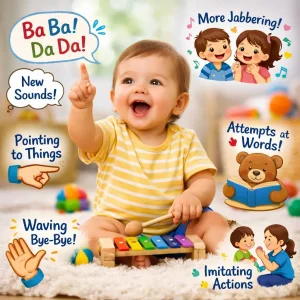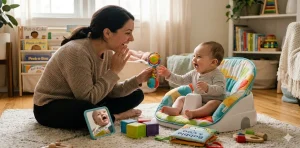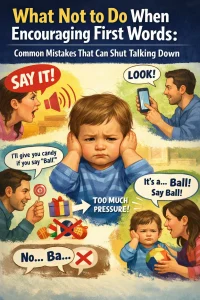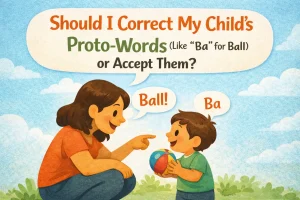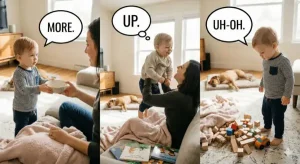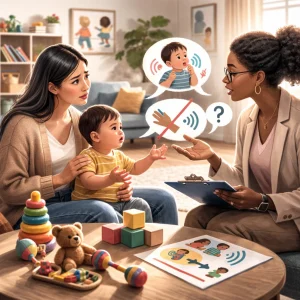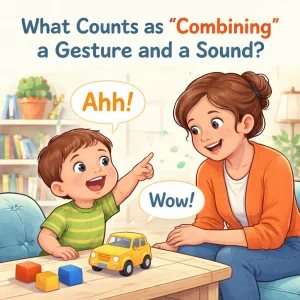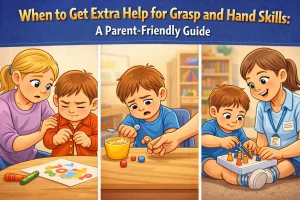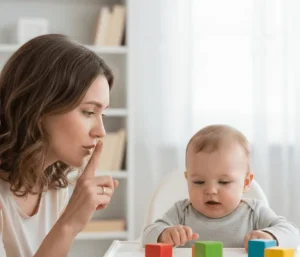Save Your Marriage: Is Marriage Counseling Right for You?
By Prapoorna M
Last Updated: April 20, 2024
In the journey of marriage, where love is the guiding light, challenges are inevitable. Picture this: You and your partner, once inseparable, find yourselves at a crossroads, where every conversation turns into a debate, and the warmth once shared now feels miles apart. It’s a scenario many couples face, leading to the pivotal question: Can marriage counseling truly mend the growing rift, or is it merely a temporary patch on a worn fabric?
Welcome to our exploration of marriage counseling, a beacon for many seeking to navigate the stormy seas of marital discord. This isn’t just about whether sitting in an office or sharing your deepest concerns with a stranger can save your marriage. It’s about understanding the essence of marriage counseling, its effectiveness, and, most importantly, how it resonates with you and your partner’s journey toward healing and understanding.
Also Read: Marriage counselling: Everything you need to know
Understanding Marriage Counseling
Marriage Counseling
Marriage counseling, at its core, is a type of therapy that focuses on helping couples navigate and resolve conflicts, improve their communication, and strengthen their relationship. It’s a journey embarked upon together, with the guidance of a trained therapist, to explore the depths of their relationship, identify underlying issues, and develop strategies to foster a deeper, more meaningful connection.
Why might couples consider counseling?
The reasons are as diverse as the couples themselves. Perhaps it’s the endless bickering over seemingly trivial matters, where each conversation feels like walking through a minefield. Or it could be the silence that has crept in, replacing warm chats with a cold void, making one feel more alone than when actually alone. For some, it’s the realization that the path of their relationship has diverged, and they no longer share the same goals, dreams, or even basic understandings of each other. In more troubling scenarios, it might be the aftermath of betrayal, where trust is shattered, and the future together is questioned.
Each of these scenarios speaks to a unique challenge, yet they all share a common thread—the hope for understanding, resolution, and a stronger bond.
Does Marriage Counseling Really Work?
In the quest to unearth the truth behind the effectiveness of marriage counseling, the journey takes us through a realm of statistics, factors of success, heartening success stories, and expert insights that collectively shed light on its transformative power.
Statistical Evidence
A significant body of research supports the effectiveness of marriage counseling. For instance, studies published in the Journal of Marital and Family Therapy suggest that approximately 70% of couples who engage in counseling report satisfaction improvements and a better understanding of each other. These statistics offer a beacon of hope, indicating that with the right help, many couples can navigate their way back to a happier relationship.
Factors Influencing Success:
The path to successful outcomes in marriage counseling is paved with several critical factors:
- Timing: Early intervention often leads to more effective results. Couples who wait too long may find their problems have become deeply entrenched.
- Therapist Compatibility: Finding a therapist who both partners feel comfortable with is crucial. A therapist’s approach should resonate with the couple’s dynamics and individual personalities.
- Willingness to Participate: Both partners must be committed to the process, open to introspection, and ready to embrace change.
Real-Life Success Stories
While confidentiality precludes the sharing of specific stories, numerous couples have reported rediscovering their love and understanding for each other through counseling. These stories often speak of moving from the brink of separation to rekindling the joy and companionship that initially brought them together. These narratives are not just tales of survival but of flourishing relationships that found their footing again through dedicated effort and guided support.
Experts’ Insights
Relationship therapists echo the sentiment that marriage counseling can indeed work wonders. They highlight that counseling offers a unique space for open, honest communication that many couples struggle to achieve on their own. It’s not merely about resolving conflicts but about learning to communicate effectively, understanding each other’s needs and desires, and building a foundation of respect and love.
At Wellness Hub, we understand the importance of guiding our readers toward making informed decisions about their relationships. Marriage counseling, with its proven track record, offers a promising avenue for couples facing difficulties. It’s not just about fixing what’s broken but about strengthening and deepening the bond that exists.
Also read: Is Online Marital Counselling Best Therapy?
The Process of Marriage Counseling
Embarking on marriage counseling is akin to setting sail on a voyage of discovery and healing, with the ultimate destination being a more harmonious relationship.
The First Session: Charting the Course
The initial session of marriage counseling serves as the compass for the therapeutic journey. Here, couples meet with their therapist to outline their relationship’s challenges and aspirations. This is a time for open dialogue, where both partners can express their feelings and perspectives in a safe environment. The therapist will likely ask questions to better understand the relationship’s dynamics, history, and the specific issues at hand. This foundational session is crucial for setting the goals of therapy and establishing a rapport with the therapist.
Navigating Through Therapeutic Approaches
As the journey progresses, the therapeutic approach chosen by the counselor plays a pivotal role in guiding the sessions. Each methodology has its unique objectives and practices:
- Emotionally Focused Therapy (EFT): EFT centers on emotions and attachment, aiming to foster a deeper emotional connection and secure bonds between partners. Through EFT, couples learn to understand and express their feelings in healthier ways, enabling them to respond to each other’s needs more empathetically.
- The Gottman Method: Developed by Drs. John and Julie Gottman, this method is evidence-based and focuses on disarming conflicting verbal communication, increasing intimacy, respect, and affection, removing barriers that create a sense of stagnancy in conflicting situations, and creating a heightened sense of empathy and understanding within the context of the relationship.
- Cognitive Behavioral Therapy (CBT): CBT addresses the thoughts and behaviors that influence emotions. In the context of marriage counseling, CBT helps couples identify and challenge negative patterns of thought and behavior that may contribute to marital strife. By adopting more positive and constructive ways of interacting, couples can improve their communication and relationship dynamics.
The Journey of Ongoing Therapy
Following the initial sessions, couples continue to work with their therapist in ongoing therapy, diving deeper into the roots of their issues and practicing the strategies and skills they’ve learned. Progress involves both in-session work and “homework” – exercises and discussions to engage in between sessions to reinforce learning and growth. The duration of therapy varies widely among couples, depending on the depth of their issues and their progress towards their goals.
Comparing Counseling Methods
| Approach | Focus Area | Methodology | Best For |
|---|---|---|---|
| EFT (Emotionally Focused Therapy) | Emotional Connection | EFT focuses on understanding and reshaping the emotional responses that influence partners’ interactions. It aims to foster a secure attachment by encouraging partners to express their underlying feelings and needs, thus building a stronger emotional bond. | Couples who feel disconnected or struggle to communicate their emotions effectively. This approach helps partners understand each other’s emotional needs and develop deeper empathy. |
| Gottman Method | Communication Patterns | This method is based on Dr. John Gottman’s research, which identified key behavior patterns that predict the success or failure of relationships. It teaches couples to recognize and avoid negative patterns like criticism, defensiveness, contempt, and stonewalling while promoting positive interactions through respect, appreciation, and understanding. | Couples experiencing frequent arguments or feeling stuck in negative communication cycles. It’s particularly effective for those looking to improve their day-to-day interactions and rebuild respect and affection. |
| CBT (Cognitive Behavioral Therapy) | Thought Patterns | CBT in marriage counseling applies the principle that thoughts influence emotions, which in turn affect behaviors. It works by helping couples identify and challenge distorted or negative thought patterns and beliefs about each other and the relationship, encouraging healthier interactions and problem-solving strategies. | Couples dealing with specific conflicts or problematic behaviors, such as jealousy, trust issues, or unhealthy conflict resolution tactics. It’s suitable for those looking to change particular patterns of behavior or thought that negatively impact the relationship. |
Also Read: How to Know If You Need Marriage Counselling? and is it Effective?
When to Seek Marriage Counseling
Realizing you might need marriage counseling is a bit like noticing your garden needs watering. The signs might not be obvious at first, but if the plants are wilting, it’s time to give them some attention. Similarly, your relationship might show signs of needing nurturing before it’s too late. Have you found yourselves arguing more often than not? Does it feel like you’re stuck in a loop, having the same discussions or disagreements without any resolution? Or maybe you’ve noticed a distance growing between you that wasn’t there before.
Are you and your partner speaking less and less?
Communication breakdown is a common reason couples seek counseling. It’s not just about arguing; sometimes, it’s the silence that speaks volumes. If you’re finding it hard to talk about anything beyond the day-to-day, or if every conversation turns into a conflict, it could be time to reach out for help.
Do you feel disconnected, emotionally or physically?
A lack of connection can manifest in many ways, from reduced intimacy to feeling like you’re living with a roommate rather than a partner. Counseling can help bridge that gap, rediscovering the connection that brought you together in the first place.
Have you experienced a major life event?
Life’s milestones, such as the birth of a child, a job loss, or the loss of a loved one, can put immense stress on a relationship. Counseling can offer strategies to navigate these challenges together rather than letting them drive a wedge between you.
Are trust issues emerging?
Whether it’s infidelity, financial secrecy, or another breach of trust, repairing that foundation is crucial. Counseling provides a safe space to explore these issues, rebuild trust, and strengthen your bond.
Recognizing these signs early and deciding to seek counseling is a proactive step toward healing and growth in your relationship. It’s not an admission of failure but a commitment to making your partnership stronger.
Know more: Signs Your Marriage Needs Counseling
Overcoming Misconceptions About Marriage Counseling
The journey to a healthier relationship often begins with dispelling myths that surround marriage counseling. Many couples hesitate to seek help due to misconceptions that can cloud their judgment and decision-making. Let’s address and debunk some of these common myths:
- Myth 1: Seeking counseling means our marriage has failed. Reality: This couldn’t be further from the truth. Seeking counseling is a proactive step toward strengthening your bond and resolving issues before they become insurmountable. It’s a sign of commitment to your relationship’s health and future.
- Myth 2: Counseling is only for serious problems. Reality: Marriage counseling can be beneficial for a wide range of issues, from minor misunderstandings to more significant challenges. It’s also a great space for couples looking to deepen their connection and improve communication, not just those in crisis.
- Myth 3: The counselor will take sides. Reality: A professional counselor’s role is to facilitate communication and understanding without judgment. They strive to create a balanced and neutral environment where both partners can feel heard and supported.
- Myth 4: Talking to a stranger about our problems won’t help. Reality: Therapists bring a fresh, objective perspective to your relationship dynamics. Their training and experience can offer new insights and strategies that couples might not have considered.
Maximizing the Benefits of Marriage Counseling
To ensure you and your partner gain the most from your counseling experience, consider these actionable tips:
- Engage fully in the process. Approach each session with an open mind and a willingness to explore and address the root causes of your issues.
- Do your homework. Many therapists assign tasks or exercises to be completed between sessions. These assignments can help reinforce what you’ve learned and encourage you to apply new skills in real-life scenarios.
- Communicate openly. Use your sessions as a safe space to express your thoughts and feelings honestly. The more transparent you are, the more your therapist can help.
- Set clear goals. Discuss and agree upon what you both hope to achieve through counseling. Having shared objectives can guide your sessions and measure your progress.
- Be patient and persistent. Change takes time. Recognize that improving your relationship is a gradual process that requires both commitment and patience.
Read more on our article: The secret to a good marriage | Marriage tips for a long-lasting bond
Conclusion
In our journey exploring marriage counseling, we’ve seen how it offers every couple a chance to grow closer and overcome challenges together. Counseling provides a supportive space to improve communication, deepen understanding, and strengthen the bond between partners. It’s a brave step towards a happier, more fulfilling relationship, emphasizing the importance of facing issues together with professional guidance.
Wellness Hub is here to support you as you consider this meaningful step. Remember, deciding to seek counseling is about valuing your relationship and committing to its future. Whether you’re just starting to think about counseling or ready to dive in, we’re with you, offering the resources and support you need to make your partnership stronger.
Frequently Asked Questions:
1. What Is Marriage Counseling?
Marriage counseling is a form of therapy that aims to improve communication, resolve conflicts, and strengthen the relationship between partners. It involves working with a trained therapist to discuss issues, understand each other’s perspectives, and develop strategies for a healthier, happier relationship.
2. How Do I Know If We Need Marriage Counseling?
You might consider marriage counseling if you experience constant conflict, feel distant from your partner, struggle with trust issues, or face significant life changes. Counseling can also be beneficial if you simply want to strengthen your bond and improve your relationship dynamics.
3. Can Marriage Counseling Save a Relationship?
Yes, marriage counseling has a high success rate in helping couples overcome challenges and improve their relationship. However, the effectiveness largely depends on both partners’ willingness to participate, work on issues, and commit to making positive changes.
4. Is Online Marriage Counseling Effective?
Online marriage counseling offers the same benefits as in-person sessions, including flexibility, accessibility, and the opportunity to work with skilled therapists from anywhere. Many couples find it to be an effective alternative that fits their lifestyle and needs.
5. How Long Does Marriage Counseling Take?
The duration of marriage counseling varies depending on the couple’s specific issues, goals, and progress. Some couples see improvements within a few sessions, while others may need more time to work through deeper challenges. Typically, sessions last about 50 to 60 minutes each.
6. What Are the Different Types of Marriage Counseling?
There are several therapeutic approaches used in marriage counseling, including Emotionally Focused Therapy (EFT), the Gottman Method, Cognitive Behavioral Therapy (CBT), and more. Each method has its own focus, such as improving emotional attachment, communication skills, or problem-solving strategies.
7. What Should We Do If One Partner Is Reluctant to Try Counseling?
If one partner is hesitant about marriage counseling, it can be helpful to communicate openly about the potential benefits, address any concerns, and agree to give it a try with the understanding that it’s a positive step towards improving the relationship. Sometimes, attending a session alone initially can also demonstrate commitment and encourage participation.
8. What Can We Expect During Our First Marriage Counseling Session?
In your first marriage counseling session, expect to discuss the reasons you’re seeking therapy, your relationship’s history, and your goals for counseling. It’s a chance for both you and your therapist to get acquainted and set the stage for future work. Your therapist might also explain their approach and how sessions typically proceed, ensuring you’re comfortable with the process.
9. How Should We Choose a Marriage Counselor?
Choosing the right marriage counselor involves considering their credentials, experience, and therapeutic approach. Look for a licensed professional who specializes in marriage or couples therapy. It’s also important to find someone whose communication style and personality feel like a good match for both partners. Many therapists offer a preliminary consultation, which can be a great opportunity to see if you feel comfortable with them.
10. Can Marriage Counseling Help with Infidelity?
Marriage counseling can be particularly beneficial for couples dealing with infidelity, offering a space to process feelings of betrayal, understand the underlying issues, and rebuild trust. A skilled therapist can guide you through the difficult process of healing, helping to strengthen your relationship and establish a new foundation of mutual understanding and respect. However, success heavily depends on both partners’ willingness to commit to the process and work towards reconciliation.
About the Author:
Prapoorna Mangalampalli
M.Sc., M.A., (Dual Masters in Psychology & English) – Counselor (6+ years of experience)
Prapoorna armed with a passionate dedication fueled by dual Master’s degrees in Psychology and English, Prapoorna sheds light on and elevates human experiences. Over 6+ years of experience fuel her insightful approach to counseling, offering profound empathy and guidance across diverse areas like online, marital, relationship, child, family, and career counseling.
At Wellness Hub, she thrives in a team environment that values innovation, compassion, and achieving results for their clients.
Connect with Prapoorna to learn how she can help you or your loved one find their voice and build a brighter future.
Book your Free Consultation Today
Parent/Caregiver Info:
Client’s Details:
* Error Message
